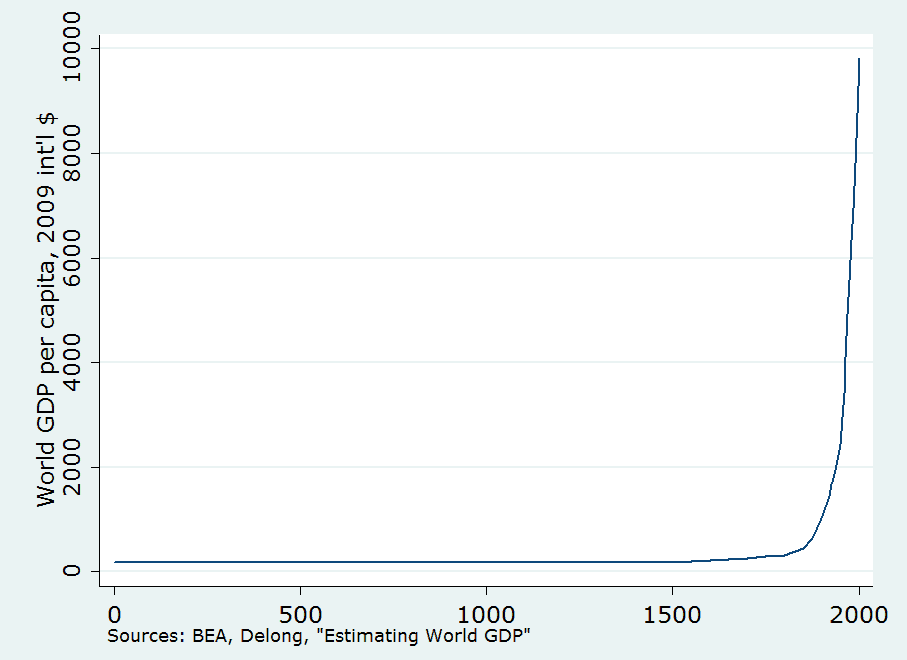Faithful in All Things: Vocation and Christian Callings
Your work is more than just “a job” or an ATM for your pastor. Every calling is itself sacred, every task a trust, and every laborer accountable before the throne.
This essay is free, but with Premium Membership you get MORE. Join today.
by Rod D. Martin
September 14, 2025
Unless you’re a pastor, your job is probably more important than you think.
I grew up in a little Baptist church in Arkansas. And like believers everywhere, we had some things exactly right — and a few things profoundly wrong.
One of those things was the idea that only formal ministry counts as a calling, and only our pastors and missionaries are truly called. Everything else? At best, God permitted it, with more than a hint of disdain. My dad sold insurance. That was okay – it wasn’t actively sinful – so long as he tithed. But obviously “serious” Christians did “more”.
But that’s utterly mistaken. It’s a devil’s lie. And it’s not a small one.
It’s a lie that tells the vast majority of people their work, and their lives, are spiritually second-class. That building houses or raising children or managing logistics is substandard somehow. That the only things that “matter for eternity” happen within the four walls of a church or a mission station. And it robs Christians of joy, theological clarity, and above all, purpose.
It makes them cogs in someone else’s machine instead of disciples fulfilling the individual missions God actually gave them, working all things together for the good of those who love Him.
“Non-ministry” work is not second-class, or “less than”. Yet we don’t disciple people for it. We rarely affirm it from the pulpit. We certainly don’t expound on the vastness of God’s purpose, weaving together all our countless tasks into a seamless, all-encompassing plan of making all things new.
This error leads to aimlessness, guilt, resentment, confusion, and burnout. Our children and teenagers receive little useful career guidance beyond encouragement to consider a call to pastor that few will ever receive. They feel guilty for not becoming a missionary to Elbonia, and thus feel disconnected from the church, too often a self-fulfilling prophecy.
Likewise, our adults assume falsely that their Monday-through-Friday lives are mere necessary evils. That their real service to God begins only after hours, unless perhaps they get a chance to witness at the watercooler. That their only real value to the Kingdom is financial.
No wonder so many disengage. No wonder so few connect their work to their witness.
Yet from Genesis to Revelation, Scripture abhors Gnosticism, and affirms that matter matters. Christ’s eternal resurrection body – and ours someday – demonstrate this beyond a doubt. God cares for His creation every bit as much as you care for the things you create. He sustains it. He extends it. The spiritual and the material are not at odds: they are complementary. And we are entrusted with the stewardship of both.
As a result, all legitimate work is not merely material but spiritual — because all of life belongs to God. He owns it all. And He calls each of us not merely to believe, but to build — to serve our neighbor, to bear fruit with our talents, and like Adam, to finish the work of creation: the Creation Mandate, as it were.
Vocation is not just how you pay your bills. It’s how you glorify your Father, by meeting your neighbors’ needs. Whether you’re a janitor or a CEO, a mom or a mechanic, a politician or a physician, the call is the same:
“Who then is the faithful and wise servant, whom his master has set over his household, to give them their food at the proper time? Blessed is that servant whom his master will find so doing when he comes.” (Matt. 24:45-46)
He’s coming. Will you be found faithful?
The Foundation of Vocation: The Creation Mandate
Vocation is not a product of the Fall. Vocation was God’s idea from the start.
Before sin, before death, before pain and toil, God gave Adam a job. And not just one. He made him a scientist, a gardener, a husband, and (prospectively) a father. He gave him the world — not to exploit, but to govern, steward, and develop. “Be fruitful and multiply and fill the earth and subdue it, and have dominion…” (Gen. 1:28). This is not a suggestion. It’s a command. Nor is it a curse. It’s a blessing.
This is the foundation of every legitimate vocation. This is the Creation Mandate.
God created man in His image, and part of that image-bearing is work. Not work as drudgery, but work as co-creation, imitation, and extension of divine purpose. God planted a garden in Eden, then commanded Adam to cultivate it — and more than that, to extend it. Eden was not a museum. It was a template. A beachhead. Adam was to take the beauty, order, and provision of the Garden and spread it to the ends of the earth.
That’s the mandate. That’s the job. That’s what every godly vocation participates in: extending Eden.
Nor was that call revoked at the Fall. God reaffirmed it to Noah after the Flood (Gen. 9:1). He didn’t say, “Well, that didn’t work.” He said, “Try again.” The Creation Mandate was not Plan A — it was The Plan.
It still is.
In fact, Scripture gives us the final picture of what Adam was meant to do — and what Christ, the Second Adam, will complete. Eden becomes a city. Revelation 21 shows us the New Jerusalem, descending from heaven, radiant and glorious — a place of order, culture, craftsmanship, population, and peace. The raw materials of the Garden are transfigured into the richness of the Kingdom. The rivers, and the gemstones, are still there. So is the tree of life. But now there are walls and foundations and nations and gates and glory, all the product of fruitful multiplication of population.
“Oh, but evangelism!” one might say, and you’d be right. The Fall introduced the need not only to remake the world but also the men. Indeed, without their redemption and regeneration, that populous New Jerusalem would be impossible.
But these are two facets of the same task. As my old Baptist preacher used to say, “we are saved from something for something.” And that “for something” is…whatever our Master equips us to do. We are surely all called to evangelism, just as we are all called to work. But God’s own list of spiritual gifts, like His description of the different parts in the Body of Christ, makes perfectly clear: we are all differently gifted, and all called to excel with the different gifts He’s chosen specifically for each of us. I can witness to my co-workers, and I should. But if my primary gifting is carpentry, carpentry is thereby my calling.
That will be important when it comes time to build a church. But it will be no less important when it’s time to build its members’ houses, or hospitals, or hotels. Christ does not permit us to wave away material needs, telling the cold and hungry without offering aid to “be warm and be filled”. Where we can, we are to meet them.
Nor do we meet them primarily through charity, though charity is one fruit of our work. We achieve it primarily through our vocations. One might protest that “it isn’t ministry if you get paid.” But that’s unbiblical nonsense. Even with regard to pastors the Lord commands that the worker is worthy of his hire. And as to all of us, He says, “the man who does not provide for his family has denied the faith and is worse than an unbeliever.” (1 Tim. 5:8) He establishes work as a means to provide. But He also makes it the primary, and certainly the most sustainable, means of meeting our neighbors’ needs.
Ask a widow whether her husband’s life insurance policy mattered, or if her church’s benevolence ministry could have paid off her mortgage or put Johnny through school. Ask a cancer patient if her radiologist’s job is “less than”.
Your work is not a distraction from God’s plan. It is His plan. You are not merely holding down a job. You are pushing back the Curse. You are extending Eden outward. You are preparing the world for the return of the King. And you must occupy until He comes.
This is why Jesus speaks as He does in Matthew 25. It’s easy to overspiritualize the parable of the talents, but that’s a mistake. It’s about stewardship — dominion — enterprise. The master gives capital. The faithful servants multiply it. The wicked servant does nothing. His problem is not that he failed. His problem is that he didn’t try. He refused the calling to extend what he was given. He buried the mandate.
The Imperative of Excellence
The Bible tells us that the eye cannot say to the hand, “I have no need of you” (1 Cor. 12:21). It’s easy, but lazy, to imagine God’s kingdom as extending only to the church and its work. That compartmentalizes our lives, walling off huge sections of them from accountability or purpose. In fact, our Master is sovereign over all His creation. He cares for every part of it, and expects us to tend it and extend it.
To this end, Abel kept flocks. Abraham ranched, traded, and led the occasional army. Lydia sold purple to the wealthy. Paul made tents. Jesus was a carpenter, for far longer than He preached. Each had another, church-oriented calling. But did this give the young Christ license to build shoddy homes? You may rest assured that His were the best of the best.
Christians should be known for their excellence, as a matter of integrity and as a reflection of God’s glory. Indeed, we image God in part by reflecting His creativity, and by doing things the way God would do them — with order and excellence. Have you met the Christian businessman or salesman (or pastoral staff, for that matter) who just slops their way through everything, asking for “grace” while unbelievers excel? The world mocks this “mediocrity for Jesus”, and rightly so. Worse still is the “Christian” charlatan, who displays his ixthus proudly but preys on the faithful. How many times has someone said to me, “The minute some salesman tells me he’s a Christian, I run the other way!” Such things ought not be.
Proverbs 22:29 tells us “Do you see a man skillful in his work? He will stand before kings; he will not stand before obscure men.” Note well: God doesn’t demean that work as “secular”, or reduce its value to the tithes it might produce. He identifies it as virtuous, as giving Himself glory, and as providing faithful believers an audience with men your pastor might never meet.
Indeed, the art, the craftsmanship, and the labor of Bezalel and Oholiab — two men who were neither priests nor prophets, creating physical objects with skill and beauty — is described as Spirit-filled (Ex. 31:1–6). “Yes, but,” you might say, “that’s because they were building the Tabernacle.” And that’s true so far as it goes. But did their prior work not prepare and qualify them for that opportunity? And if they had done less than their best before, would there have been an after?
God calls us to the work He gives us, and expects our absolute best in it, no matter how menial, no matter how preparatory. And He rarely tells us what He’s preparing. He certainly never told the slave Joseph He would someday make him head of all Egypt. Rather, He rewarded Joseph’s long and faithful service under the most unjust of conditions.
But not immediately. Not quickly. Only through great effort, perseverance, patience, and trust.
Pushing Back Against the Curse
Every legitimate vocation is an act of war against entropy. It pushes back the effects of sin — scarcity, decay, death — and restores order, provision, and blessing. It participates in what Christ came to do: to undo the works of the Devil (1 John 3:8).
Think about the janitor. If he does his job poorly, people slip, fall, get sick. If he does it well, no one notices — but real harm is prevented. He serves the good of others and preserves the space for their flourishing.
Or think about McDonald’s. It certainly doesn’t think of itself as a ministry, and it’s fashionable to mock fast food. But every day, that chain feeds one out of every one hundred of all the world’s people. You may prefer organic berries and grass-fed beef. But the mom feeding four kids on a tight budget may not have that luxury.
That’s provision. It’s a very practical love of neighbor.
Railroads and canning technology virtually ended famine. Oil companies lit the world, and in the process, saved the whales. Smartphones give subsistence farmers access to weather forecasts, education, and emergency care.
Vocation isn’t just about making money. It’s about making things better. It’s about solving real problems, in real time, for real people. You literally make money for your family by meeting other families’ needs. It’s the Golden Rule in action.
The Bigger Picture: Not One Steward But Many
And that leads us to the bigger picture. Because God’s plan is far bigger than any one of us. We are a team, and every position is essential to the rest.
Our work alleviates scarcity. But the Bible begins not with scarcity, but with ownership. “The earth is the Lord’s, and the fullness thereof” (Ps. 24:1). Why? Because He created it. He owns everything — including us. He therefore gets to set the rules for His property’s use.
God delegates that ownership. He establishes property rights, and commandments against theft and covetousness, to protect the boundaries of that which He has entrusted separately to each of us. We may not take what He has not given us. He has assigned us each the task of providing Him an excellent return on what He’s given us, both material and spiritual.
Profit isn’t incidental. It’s essential.
In modern times, we call this Capitalism, the system of private property rights and free — not coerced — exchange. It enacts and incentivizes the command to love your neighbor as yourself. Why? Because free markets require mutual benefit. Absent fraud, which is both a sin and a crime, I can’t get paid unless I meet someone else’s need. I don’t profit unless I solve someone else’s problem.
This is nothing short of miraculous. Capitalism harnesses even sinful motives to produce others’ good. The man who makes shoes to buy a boat must still produce shoes that people want and need to buy. Even if he’s selfish, he must serve others to get what he wants.
A thorough knowledge of Scripture makes this clear. In it:
Private property is affirmed in the Eighth and Tenth Commandments.
Inheritance is protected.
Labor is honored.
Covetousness is condemned.
Generosity is commended, but never coerced.
If you invent a better lightbulb, or a better way to ship food, or a better medical device — and people freely choose to buy what you offer — you’re solving real problems for real people. You’re loving your neighbor. Whether your motive is ministry or money, the effect on others is the same.
I encourage you to see it as, and be motivated by, ministry. But God used Pharaoh, Nebuchadnezzar, and Caiaphas to achieve His purpose, and He is surely using you whether you wish it or not.
The man who builds the railroad may never set foot in your church. But when that railroad delivers canned food to a starving city, he has pushed back the Curse. He has served the Kingdom. He has, however unwittingly, answered a call.
And it’s even better than that. Because the more specialized we all become — the more fruitful we are, the more we multiply, the more different people exercising different gifts there are — the greater the reduction in overall poverty. A few people can make a fire and hunt for food. Many people can build an entire civilization, with plenty of food, and art, and science, and everything. Even if the hunter-gatherers had such gifts, their society is too small to use them. Faithfulness to the Creation Mandate creates an ever-greater division of labor and thus progressively eliminates the material poverty caused by the Curse. It also provides the money for the missionaries and pastors such a great number of people will need.
This is exactly what Paul was describing in his illustration of the different parts in the Body of Christ. And it took a while, but that insight brought us the breakthrough concept of the division of labor. This key intellectual achievement enabled not only the Industrial Revolution but the unprecedented hockey stick spike in global living standards we’ve experienced since the 18th Century.
At the beginning of that era, as had been true for millennia, 94% of the world's population lived in extreme poverty (less than a dollar a day in current dollars). In the comparatively brief time since, that percentage has almost flipped. But this is not to be measured in mere money: rather, it should be seen in the reduction of human suffering, the establishment of education, the increase in our life expectancy (from just 47 in 1900 to 82 today), or in Biblical terms, the pushing back of the Curse.
This is the overlooked genius of God’s providence in vocation. We are not cogs in a machine, but we are members of a Body. The more of us there are, the more specialization is possible, the more we’re able to focus on the unique (as opposed to the general) gifts God has given us, and the stronger and more prosperous the whole of Christendom becomes.
Adam Smith called this the “invisible hand”. He was theologically deficient but nevertheless correct. That hand is the hand of God.
What Churches Should Teach
If the church fails to teach vocation, it shouldn’t be surprised when its people treat most of life as spiritually meaningless, and when they fail to see the comprehensiveness of God’s sovereignty and plan.
This is pastoral malpractice. It leaves Christians adrift — unsure how to serve Christ outside the church, and confused about what “faithfulness” requires from Monday to Saturday.
But it also deprives them of purpose. Why should we not see His intentionality in crafting us each uniquely as we are? Why should we not feel God-honoring joy in our callings, both spiritual and material? And yet if we continue in the false belief that our work has little or nothing to do with God, how could we?
In elevating the importance of the church at the expense of the world outside its walls, we have diminished the very thing we sought to exalt. In seeing all things as part of God’s perfect plan, every area of life as His and for His purpose, we don’t diminish the church: we magnify it. And we exalt the Lord of all that is.
Pastors must fix this.
Christians need to hear from their pulpits that their jobs matter, and not just as a means to tithe. Building houses, coding software, writing music, teaching school, or raising children are not distractions from ministry. They are ministry. God is working all things together for the good of those who love Him. And “all” really does mean all.
The church is not just the gathering place of worshipers. It is the training ground of stewards, of all God’s gifts both spiritual and material.
So ask yourself: Am I doing what God made me to do? Am I in the field He assigned to me? Am I solving the problems He equipped me to solve?
If not, don’t despair. Realign. Pray. Seek counsel. But don’t bury your talent.
And if you are in your calling — run. Run hard. Excel. Be Bezalel. Be Hiram. Build well. Make a difference. Finish strong. Don’t fear failure, and don’t give up: God’s timing and harvest are His own.
“Whether you eat or drink, or whatever you do, do all to the glory of God.” (1 Cor. 10:31)
Your work matters.
So go do it.
— This essay originally appeared as the lead article for the September 2025 issue of Christ Over All.












I'm curious how you reconcile your denial of genocide in Gaza, with being a Christian? And politely also inquire if you were brought up on the "Scofield annotated" bible in the Baptist church that you attended during childhood? https://x.com/trackingisrael/status/1967312912277770724